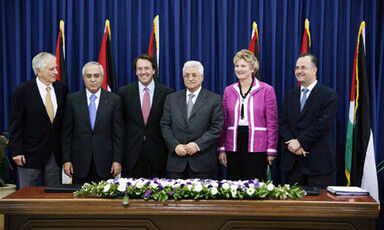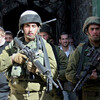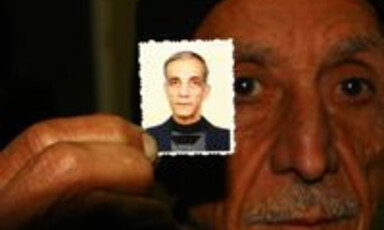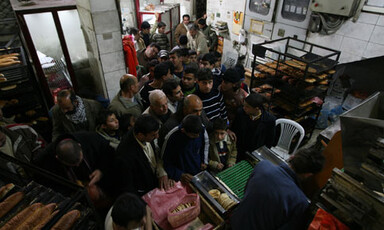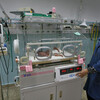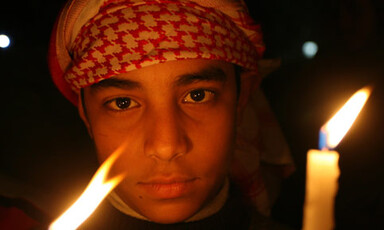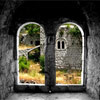
Gaza's last gasp
23 January 2008
Israel might find that giving the Palestinians their freedom and allowing them the dignity of self-determination in their own land might be far more effective in bringing about a peaceful solution than all this bloodshed and misery. Fifty years have passed since Israeli Chief of Staff Moshe Dayan said, “How can we complain about Gaza’s hatred towards us? For eight years, they have been sitting in refugee camps while right in front of them, we are turning the land and villages of their forefathers into our home.” Sonja Karkar comments. Read more about Gaza's last gasp
